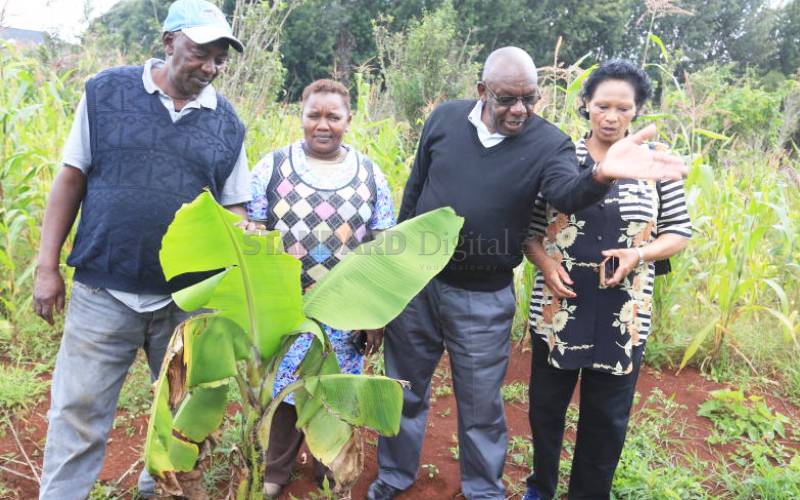×
The Standard e-Paper
Stay Informed, Even Offline

Josiah Kangethe, his wife Monica Wanjiku, Jackson Karanja and Mary Wanjiku at the gravesite where the remains of Benjamin Njenga were exhumed following a court order in Limuru. Njenga was later buried in Nakuru. [George Njunge / Standard]
A family has exhumed remains of their kin who died 65 years ago, after a series of misfortunes.